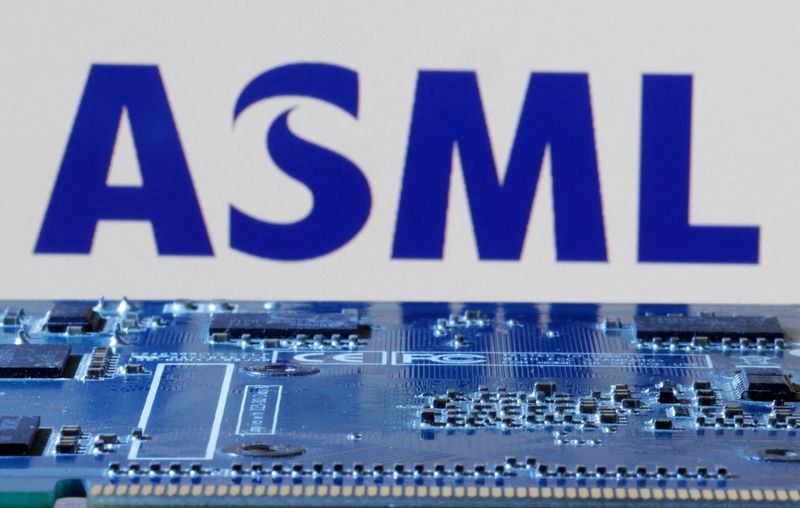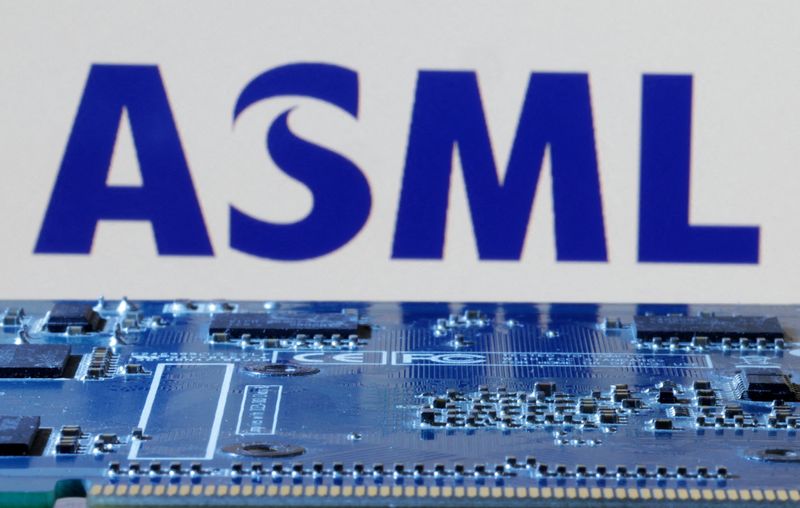
By Toby Sterling
AMSTERDAM (Reuters) -The Dutch government on Tuesday clarified that ASML (AS:ASML) needs a licence to provide spare parts and software updates for computer chipmaking equipment it has previously sold to Chinese customers that now falls under export restrictions.
That includes the two additional tools that the Dutch government added to its national control list on Friday in a move to coordinate policy with the United States, according to a statement provided to Reuters by the Foreign Ministry.
The clarification follows confusion over whether the Dutch government is planning additional servicing restrictions on ASML, Europe’s largest technology firm, which the ministry indicated is not the case.
“Servicing…is vetted under the licensing requirement (and includes)…parts, software and technology developed specially for this equipment,” the ministry said in a statement.
“As of Sept. 6, 2024 this licensing obligation is expanded” to include ASML’s 1980di and 1970di machines, it added.
ASML, which said on Friday it did not expect the change to impact its earnings, declined to comment.
Friday’s move prompted a protest from the Chinese government against U.S.-led export controls and a call to protect “common interests” of Chinese and Dutch firms.
ASML dominates the market for lithography tools, essential to chipmakers for creating the circuitry of chips.
After an initial round of Dutch restrictions in 2023, the company instructed its customers in China – its third-largest market after Taiwan and South Korea – not to expect licences to import its most advanced DUV tools after Jan. 1, 2024.
The Dutch government cooperates and aligns closely with the United States on export policy, with Chinese support for Russia in the Ukraine war an important security concern.
ASML CEO Christophe Fouquet said at an event in New York on Sept. 4 that he expects the U.S. government to continue pushing for additional restrictions on the company’s exports to China.
“That is a bipartisan issue so I think whatever happens in November this will stay,” he said, referring to the U.S. presidential election.
He added that he expects pushback from the Dutch government against additional U.S. restrictions, which he said are increasingly motivated by economic rather than security considerations.

